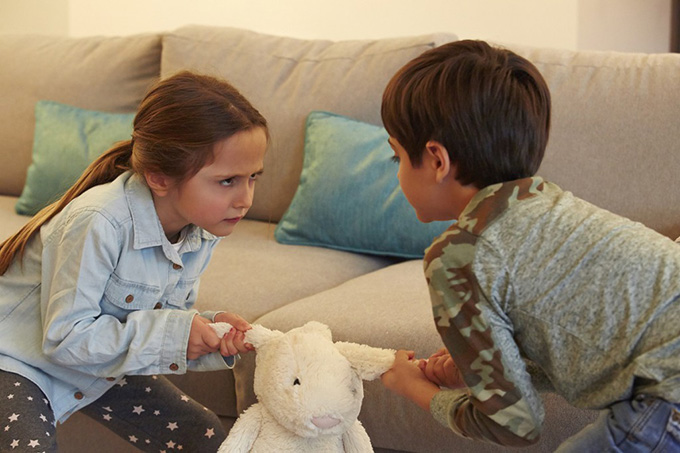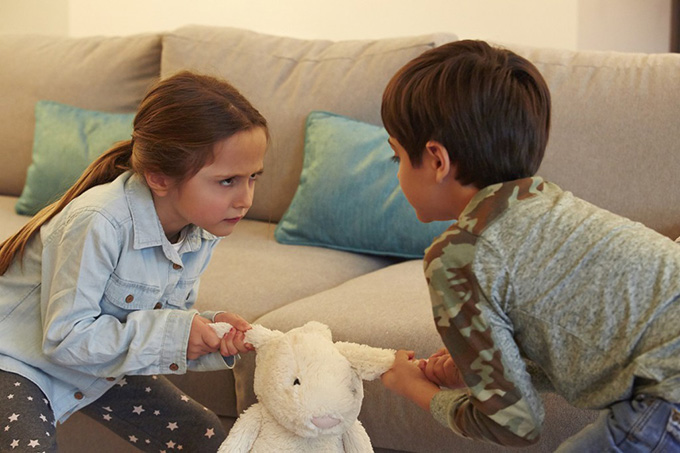 As any parent will tell you, a common feature of the school holidays is an increase in squabbling kids. Whether in the back of the car, at the park or by the TV, you will hear the whingey sounds of “Muuuum, Ollie just called me a stupid head!”.
As any parent will tell you, a common feature of the school holidays is an increase in squabbling kids. Whether in the back of the car, at the park or by the TV, you will hear the whingey sounds of “Muuuum, Ollie just called me a stupid head!”.
School holidays
— Jacki Liddle (@jacki_liddle) December 5, 2016
Hours of squabbling already at 730am
Googles boarding schools……for parents
Sibling rivalry
From an evolutionary point of view, sibling rivalry is about competition for resources. Think of baby birds in a nest, squawking the loudest to receive their food. They can even kick competitor chicks to their death to increase their share of the bounty.Are you playing favourites?
Children will quickly pick up on any indication you may be playing favourites and may act out negatively to get your attention back to them. Be honest with yourself – are you paying more attention to one child because they are more similar to you, or share your interests? If that’s the case, make an extra effort to be involved with all of your children equally.Kids need to do some growing up
Children genuinely pass through different stages of development. For example, a two-year-old can be quite narcissistic and may even hit, bite and scratch to get their way. Explaining firmly they are not allowed to do that to other people, and introducing the idea that their behaviour hurts others can help build empathy. Children also take until they are about four to develop a “Theory of Mind” or the capacity to understand issues from another’s perspective. So, it is important to take time to explain why their sibling is upset with them and ways in which they could resolve this conflict.Is there a big age gap?
If your children have a larger age gap, consider just how different their interests and developmental capacity truly might be. Asking a teenage child to “hang out” (or in reality, babysit) a younger sibling and thinking this will foster a friendship between them may be unfair and lead to tensions. You also need to explain to younger children why a teenage sibling is allowed to do x, y and z but they can’t (or else this will seem unfair and possibly lead to resentment).Are the siblings very different?
Also consider that people can be genuinely differ in terms of personality or temperament. For some siblings, trying to live with someone who is so fundamentally different to them (and they would never willingly choose as a friend) is a real challenge. Occasionally a highly introverted family finds themselves with a tap-dancing, attention-seeking extrovert, whom they find reckless and exhausting. Similarly, a rowdy hyperactive mob gets thrown a nerdy introvert who they find boring and weird. Sometimes you just need to accept that your kids aren’t going to grow up to be best buddies, they are too different, and that’s OK.Have a plan
When kids are thrown together for longer periods than usual, have a plan. Try to arrange activities that are fun for the whole family, as well as some things they can do on their own if they need a break from one another. This may include arts or craft, gardening, practising sports skills, or visiting friends and family.Support kids to talk
When conflicts arise, you really can help children by supporting them to express themselves and say why they’re upset, then have a balanced discussion about what might be a reasonable solution. Discuss why conflict might be occurring – perhaps they have differences in temperament, interests and age-related abilities. This will really help kids of all ages build social understanding.Half proud of my squabbling kids.
— Mark Wheatley (@MarkinDowgate) July 4, 2022
Told not to call each other by rude names, 5yr old labelled his big sister ‘dub’. She replied that he is an ‘idiom’.
